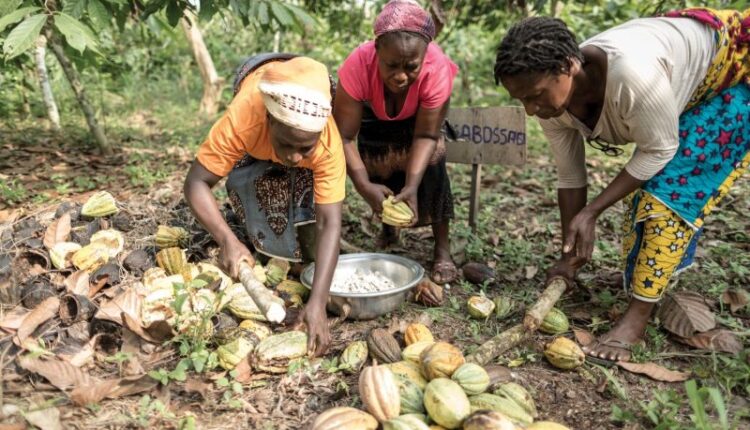A whopping 1.56 million underage children allegedly continue to be caught up in child labour in cocoa farms and allied setups globally, despite earlier promises by cocoa and chocolate big players to fight the canker.
According to the findings of the latest Annual Chocolate Scorecard study released earlier this month by the Australia-based charity, Be Slavery Free, ” there is a long way to go” in addressing the child labour issue.
A statement released by the charity and sighted by Cocoa Post cited the emergence of footage of children working with machetes on a cocoa farm that supplies to a company owned by Cadbury.
“Much of the child labour found in West Africa is the hazardous form of child labour, where a child is in danger through activities such as carrying heavy loads, using dangerous equipment such as machetes, or being exposed to dangerous chemicals”, the charity’s Fuzz Kitto is quoted as saying.
Too Slow Progress
The researchers have accused industry players of what they describe as “too slow progress” and want the big companies to start paying farmers ‘properly’ to provide them living income to halt children being forced to work in cocoa farms and production outlets.
“If companies started paying farmers properly, so they can get a living income, there would be fewer children forced to work in cocoa production and fewer farmers cutting corners with dangerous pesticides,” says Kitto.
He added, “Every year the chocolate industry’s big players assure us that they’ll do something about child labour and the huge number of children being exposed to chemicals that burn their skin and affect their breathing. We say that progress is too slow and they have to stop poisoning children to produce chocolate”.
Unfair Cocoa Prices
West African cocoa giants, Ghana and Ivory Coast, recently introduced a $400 per tonne Living Income Differential (LID) levy on their produce to help tackle extreme poverty among farms.
But regulators in those countries have accused cocoa traders and chocolate companies of evading the LID.
Meanwhile, the European Union is set to pass Due Diligence legislation that demands responsibility for deforestation and human rights in supply chains but is loudly silent on historically low prices, the root of the cocoa industry’s ills.
Good Eggs, Broken Eggs
For attaining success in sustainability certification, the survey named Ferrero, Hershey’s, Fazer and Ritter for their “good eggs” recognition while indicting Storck, Starbucks and General Mills for “broken eggs” and Storck had the worst rating for lack of transparency about its policies.
The study surveyed 38 of the world’s largest cocoa companies, including chocolate traders, processors and manufacturers.
They were examined using the 6 most pressing sustainability issues facing the chocolate industry such as traceability and transparency; living income and policies; deforestation, climate and agroforestry; agrochemical management, and child labour.
Overall, the survey sought to examine the social and environmental impact of the companies that control global cocoa production.
About twenty organisations from academia and civil society, including EcoCare Ghana, European Freedom Network, ACRATH, Green America and Child Labour Coalition collaborated on the latest work.
Download the Chocolate Scorecard 2022 report here.
- NAFCO Delegation Woos Investors At New York IFAL Forum - September 24, 2022
- Global Food Security Can Be Achieved With A United Front - September 24, 2022
- African Cocoa Agroforestry Competition Launched In 3 Countries - May 11, 2022
